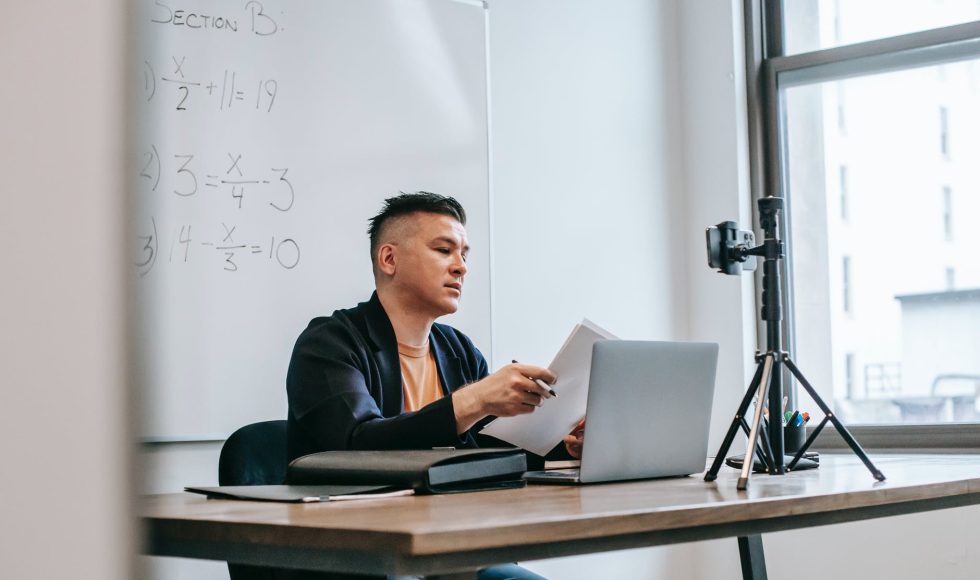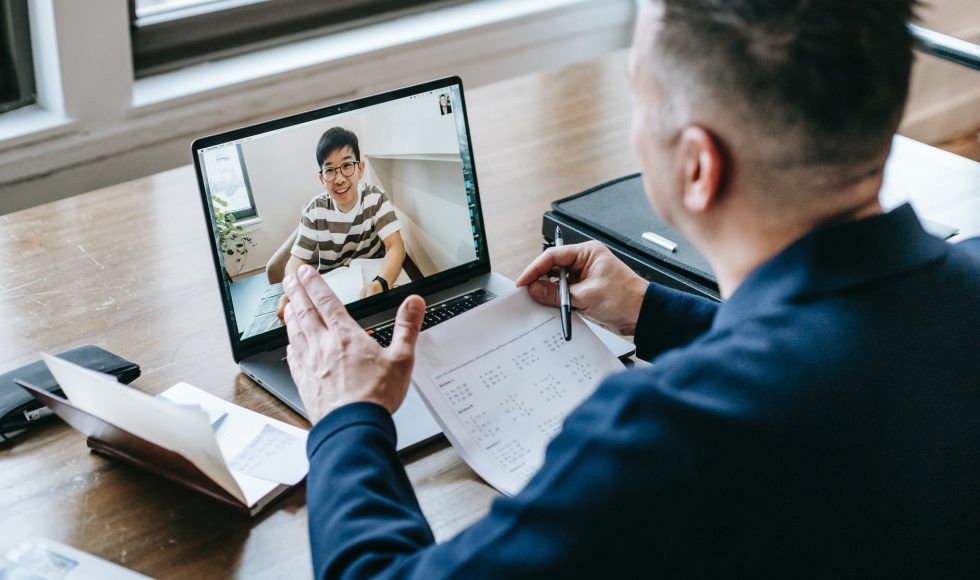Drs. Don Johnson and Kathryn Zawisza from the University of Arkansas presented at the 2020 Lilly Conference online a review of how their institution’s faculty responded to the transition to remote teaching. They were part of a group tasked with summarizing faculty feedback and providing lessons learned to their community. They were one of three […]
Varun Singireddy and Kyle Bourcier from Ferris State University presented a detailed explanation and demo of the use of Discord for communication in courses. I had heard about Discord before and was interested in learning more about its capabilities. The presenters provided enough information for me to understand how Discord is useful and different from […]
I have wrestled with the advantages and limitations of both synchronous and asynchronous online teaching delivery. A year ago, the two terms did not come up too often. Now, I think about, read, and discuss these terms in the context of online teaching daily. I have also formed opinions and have tried to be open […]
Drs. Diane Chapman, Katherine Stewart, and Courtney Thornton from NC State University described a large survey of the faculty there in April 2020. They presented the results and discussed implications in a recorded session for the 2020 Lily Conference. The survey had the goal of learning from instructors about their experience providing academic continuity to […]
Dr. Amanda Holton from the University of California Irvine prepared a superb presentation for the asynchronous 2020 Lily Conference sessions. The audio quality and video transitions made it very easy to follow; the slides are informative. Holton clearly explained the type of courses they teach: large chemistry courses with 300 students! UC Irvine (or the […]
Drs. Katherine Wilford, Demetrius Collins, and Megan Flores from the University of St. Augustine described how they engage students in their health science courses in a virtual setting in a recorded 2020 Lilly Conference session. Wilford defined student engagement and the relationship between engagement and satisfaction. Some of the studies mentioned by Wilford using active […]
Dr. Chrystal Dean from Appalachian State University discussed the use of backward design with another critical element for online courses. The recorded 2020 Lilly Conference presentation included examples and a reflective analysis of the design process. Dean began by having the audience reflect on the silver linings during the pandemic, including more walks with children. […]
Drs. Carrol Warren and Michelle Bartlett recorded a short session for the 2020 Lily Conference entitled “Applying Improvement Science to Promote Online Course Delivery Successfully” with examples of the application of this method/mindset for their courses. The Carnegie Foundation identifies six core principles of improvement. Warren explained this framework and focused on one aspect or […]
Drs. Carrol Warner and Michelle Bartlett from North Carolina State University presented a recorded session about “Creating and Maintaining an Inclusive Online Learning Environment” for the 2020 Lilly Conference. The two presenters have extensive experience and showed several tools and approaches. I appreciate hearing their rationale for certain activities. They mentioned five areas for creating […]
Dr. Michelle Bartlett from North Carolina State University shared several considerations for online course design for teaching and learning for students with low-bandwidth access at the 2020 Lilly Conference. Bartlett has extensive experience teaching online. Do students in the courses we teach have internet access or device limitations? Bartlett started the presentation by reminding us […]











